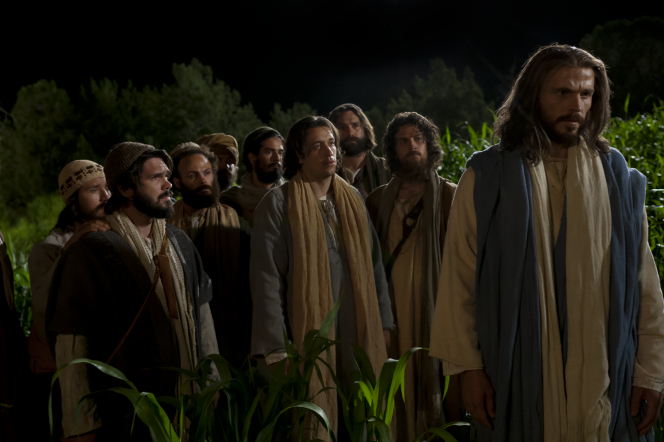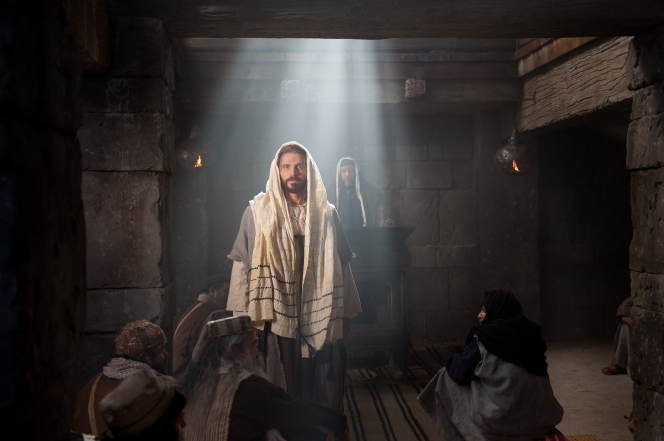Las Vegas Nevada, USA
Stoicism, a type of Greek philosophy, espouses to a state of becoming indifferent towards external influences, which easily includes the everyday difficulties of life. “… to Stoics both pain and pleasure, poverty and riches, sickness and health, were supposed to be equally unimportant.” Was Christ stoic? And if I am to follow in his example, when I struggle and doubt with what life is giving me and with what sometimes the Lord Himself is giving me, does that mean I’m failing? Does it make me unfaithful?
Various scriptures in the New Testament and Book of Mormon ascribe to this concept that Christ experienced life much as we do, though He did it perfectly:
“Wherefore in all things it behooved him to be made like unto his brethren, that he might be merciful and faithful high priest in things pertaining to God … For in that he himself hath suffered being tempted, he is able to succor them that are tempted.” (Hebrews 2:17-18)
“For we have not an high priest which cannot be touched with the feelings of our infirmities; but was in all points tempted like as we are, yet without sin.” (Hebrews 4:15)
“And lo, he shall suffer temptations, and pain of body … even more than man can suffer …” (Mosiah 3:7)
“And he shall go forth, suffering pains and afflictions and temptations of every kind …” (Alma 7:11)
I take great comfort in knowing that our Savior confronted some of the same temptations and heart ache and pain as we do, not above it at all but right down in it without reservations, so as to understand us and show us that since He made it out, so can we.
Case in point: towards the end of the Gospel of Mark, Christ has just had the Last Supper with his Apostles and they’re headed to Gethsemane. He knew exactly what lay ahead of Him. He had been trying for weeks to get His Apostles to understand, so you think He Himself should in every way be mentally prepared for this, right?
Modern Gethsemane
As they get to the garden, Mark records: “And they came to a place which was named Gethsemane: and he saith to his disciples, Sit ye here, while I shall pray. And he taketh with him Peter and James and John, and began to be sore amazed, and to be very heavy; and saith unto them, My soul is exceedingly sorrowful unto death: tarry ye here, and watch”(14:32-34).
Sometimes we exaggerate. We say things like “I’m starved to death!” or “I’m bored to death!” This statement by the Savior, though, was not an exaggeration. If he says that He is sorrowful even unto death, it is a type of sorrow and heaviness that is hard for us to comprehend. A New Testament study manual explains:
“Mark’s language bears witness of the reality and severity of the Savior’s suffering. The Greek word translated ‘sore amazed’ in the text can refer to a range of emotions, including amazement, awe, astonishment following great shock, and overwhelming distress. The Greek verb translated ‘very heavy’ can mean depressed, dejected, and full of anguish or sorrow. Together these words depict a deep and extreme agony. The Savoir said that His soul was ‘exceedingly sorrowful unto death’—that is, His anguish was so intense that He felt He was at the point of death.”
But why? Why was He so sorrowful, before He even began the process of Atoning for our sins? What was He struggling from?
Could it be that in this time of extreme mental, spiritual, and physical anguish, the Savior struggled to accept what the Father was giving Him? An internal battle and temptation so deep that it caused Him a sorrow almost unto death? Not too long after that He separates Himself from His disciples, falls on His face from carrying such a heavy load, and pleads with the Father, “O my Father, if it be possible, let this cup pass from me” (Matthew 26:39), or a more desperate version, “Father, all things are possible unto thee; take away this cup from me” (Mark 14:36). It is my opinion that He was suffering from what a lot of us experience: He just really, really didn’t want to go through this.
Several years ago during my Junior year at BYU I dated a girl. This relationship was the substance of a Nicolas Sparks book; I mean, it was perfect. It was a relationship that was incredibly emotionally and spiritually satisfying, it felt like pure light. It made me want to be better. Time progressed and eventually I asked her to marry me, and she said yes.
Almost immediately after getting engaged, things started falling apart. After months of working and struggling to keep it afloat, she called it off. I actually have an immense respect for this girl: she did what I couldn’t; she did what needed to be done. In reality it would have never worked. It wasn’t what was best for us.
I remember the day before she called it off, though, I had gone to the temple which is a place to be near to God and to feel His Spirit. While in the temple I received an undeniable peace that whatever was going to happen was for my best and that the Lord would be with me. I was surprised, though, at how difficult it was for me to accept the reality of things. Despite all the spiritual witnesses that the Lord was with me in this and all the hope in better things, despite knowing the existence of God as my Father and His loving plan for me, I still fought with Him. At times doubts about my faith and frustration with life overwhelmed me. It amazed me how long it took me to accept everything, to move on. My journal during this time if you read it is like reading the diary of a teenager, it’s so up and down emotionally it’ll make your head spin.
What I’ve come to understand is that sometimes it is perfectly normal to struggle. It is perfectly normal to hurt and to grieve, even despite having all the knowledge in the world concerning the nature of God, the reality of His Son and His Atonement, and their ultimate plan for your success. If the Savior, He who was perfect in every particular, was sorrowful and heavy when facing what the Father needed Him to go through, then maybe I should give myself a break when I need to process things in my own time and way.
In the Book of Mormon we read that there is an “opposition in all things” (2 Nephi 2:11) and that “man could not act for himself save it should be that he was enticed by the one or the other” (2:16). Confronting doubt and despair instead of “smother[ing] unpleasant truths beneath a cloak of pretended happiness” gives us continual opportunities to choose and respond with faith and hope. Although it may be something we seemingly go back and forth on often, it nonetheless gives us opportunities to emulate our Savior and respond in our difficulties: “nevertheless, not my will, but thine, be done” (Luke 22:42). If we are able to respond that way (or even if we desire to be at a place to be able to say something like that and really mean it!), then we are winning an incredible fight.
Latest posts by Daniel Rincon, Moroni Channel (see all)
- 9-year-old primary killed while riding bike - June 26, 2025
- 8 young women died during church activity - June 26, 2025
- LDS Church yet to issue official statement on reported Missionary kidnapping in Congo - June 21, 2025
- Utah Native Finds Success on Broadway and HBO’s Gilded Age - June 19, 2025



